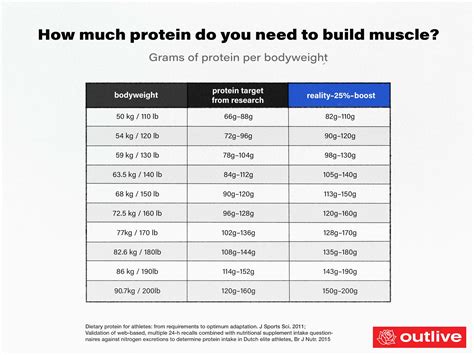How Much Protein to Gain Muscle: A Comprehensive Guide
Gaining muscle mass requires a multifaceted approach, encompassing consistent workouts, adequate rest, and—crucially—sufficient protein intake. This comprehensive guide will delve into the optimal protein intake for muscle growth, debunking myths and providing practical advice for maximizing your results.
Understanding the Role of Protein in Muscle Growth
Protein serves as the fundamental building block for muscle tissue. During resistance training, your muscles experience microscopic tears. Protein provides the amino acids necessary to repair and rebuild these fibers, leading to hypertrophy (muscle growth). Without enough protein, your body struggles to effectively recover and grow.
The Importance of Amino Acids
Protein isn't just protein; it's composed of various amino acids, some of which are essential (meaning your body can't produce them and must obtain them through diet). These essential amino acids are particularly critical for muscle protein synthesis, the process of building new muscle tissue.
How Much Protein Do You Need?
The recommended daily protein intake for muscle gain varies depending on several factors, including your:
- Training intensity and volume: More intense and frequent workouts demand higher protein intake.
- Overall activity level: Active individuals generally require more protein than sedentary individuals.
- Body weight: Heavier individuals typically need more protein than lighter individuals.
- Body composition: Individuals with lower body fat percentage may need slightly more protein.
While general recommendations exist, it's crucial to remember that these are guidelines, not strict rules. A common recommendation is 1.6 to 2.2 grams of protein per kilogram of body weight (0.73 to 1 gram per pound). However, some individuals may benefit from slightly higher or lower intakes.
Example Calculation:
Let's say you weigh 70 kg (154 lbs). Using the higher end of the recommendation (2.2g/kg):
70 kg * 2.2 g/kg = 154 grams of protein per day.
This is just an example. You might need to adjust this amount based on your individual factors.
Beyond the Numbers: Quality Over Quantity
While the quantity of protein is important, the quality is equally crucial. Prioritize complete protein sources, which contain all nine essential amino acids. Examples include:
- Lean meats: Chicken, turkey, beef, fish
- Eggs: A fantastic source of protein and essential nutrients.
- Dairy products: Greek yogurt, cottage cheese, milk (choose low-fat options)
- Legumes: Lentils, beans, chickpeas
- Soy products: Tofu, tempeh
Strategies for Optimizing Protein Intake:
- Spread protein intake throughout the day: Aim for smaller, frequent meals containing protein rather than one large protein-rich meal. This helps maintain a consistent supply of amino acids for muscle protein synthesis.
- Combine protein sources: Consuming various protein sources ensures a wider range of amino acids.
- Track your protein intake: Use a food diary or app to monitor your protein intake and ensure you meet your daily goals.
- Consult a professional: If you're unsure about your protein needs, consult a registered dietitian or sports nutritionist for personalized guidance.
Conclusion:
Determining the optimal protein intake for muscle gain requires considering individual factors and tailoring your approach accordingly. Focus on consuming sufficient high-quality protein, spread throughout the day, and remember that protein is just one piece of the puzzle. Consistent training and adequate rest remain vital for achieving your muscle-building goals. Don't be afraid to experiment and find what works best for your body.
